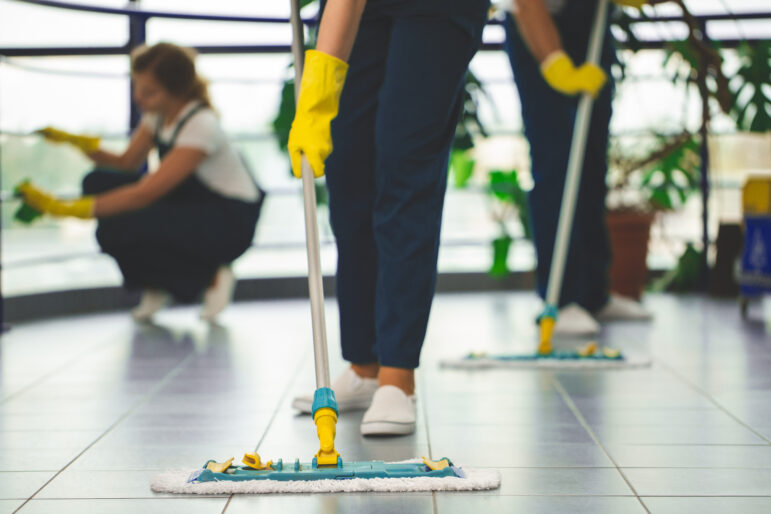With the heightened attention on cleaning and sanitizing, labour shortages, and shifting building occupancy, the last few years have certainly taken their toll on the commercial cleaning industry. And while cleaners and janitorial staff have been recognized as the unsung heroes, they have been burdened with more work, less labour, and higher expectations from customers, all affecting the mental health of the industry.
Working extreme hours can cause stress, burnout, and health issues, and many cleaners are experiencing these effects as the industry continues to recover.
The night shift
Not only has the pandemic had an impact, but working nights can really negatively affect workers’ health, too. Studies show that 70 per cent of night-shift cleaners are not getting enough sleep, 45 per cent of female workers have safety concerns, and 70 per cent said they work off-hours because they don’t have a choice.
One of the positives of the pandemic is the growth of work-from-home and flex schedules. With building occupancy shifting, many businesses are adjusting their cleaning schedules to include a day shift, which will may alleviate some of the stress that cleaners face.
RELATED: Cleaning models for the post-pandemic reality
There are some steps that cleaners can take to help mitigate some of the stress that they are experiencing in this post-pandemic landscape. Experts recommend that cleaners:
- Implement systems that can automate repetitive jobs to save time and focus on the bigger tasks.
- Use teamwork to better distribute tasks and get closer to the work-life balance we are all seeking.
- Set strict schedules to be able to accomplish more and still have time for yourself.
Invisibility
Many cleaners feel that they are invisible, or that their work has been undervalued, and that can lead to mental health struggles. Traditionally, working at night when no one is around means that there is very little socialization and often that means no recognition. This can be hard on workers.
There are some steps that companies can take to recognize the hard work and detailed skill that commercial cleaning requires:
- Allowing cleaners autonomy over their processes and schedules means that they can better allocate their time, that their expertise is recognized, and it shows confidence in their abilities.
- Providing proper training, tools, and resources to boost cleaners’ confidence and allow their work to shine.
- Promoting respect and recognition among employees to elevate the image of commercial cleaners and make the work environment more enjoyable.
Prioritizing the mental health of all workers is crucial and commercial cleaners have faced additional challenges in the last few years. Prioritizing their mental health, elevating the industry, and helping to build workers’ confidence can create a more positive work environment, lift some of the stresses of the job, and make the industry more appealing to new potential employees.









